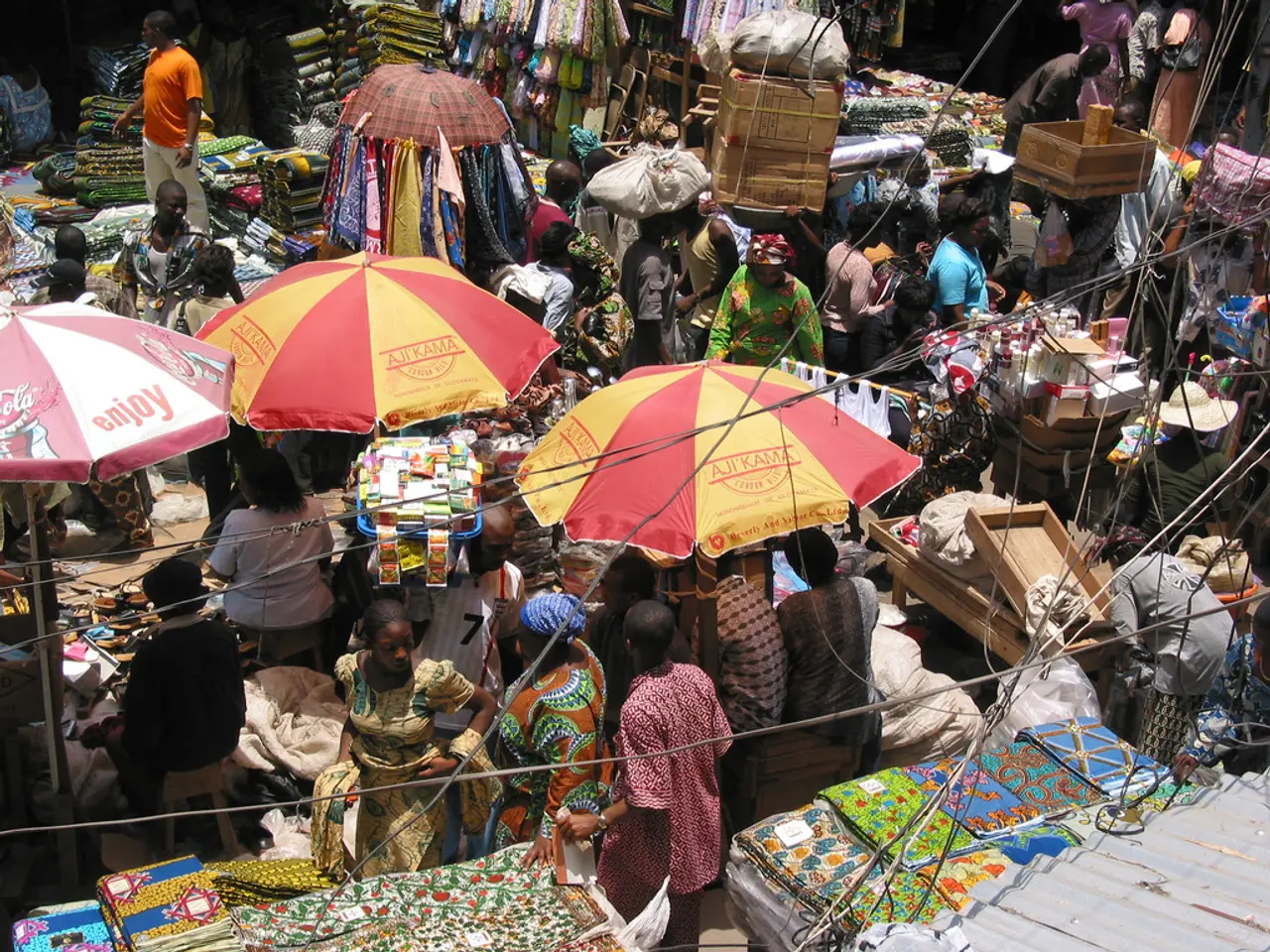Kazakhstani residents are showing a growing interest in property purchases across various regions.
In June, Kazakhstan witnessed a significant surge in real estate transactions, with more than 33,000 properties changing hands across the country. This increase, according to the National Bureau of Statistics, is primarily attributed to several key factors that have led to stronger markets, economic benefits, and urban expansion.
One of the main causes behind this trend is the growth in infrastructure investments, particularly in transport and manufacturing. Kazakhstan's construction industry is forecasted to expand by 6.8% in 2025, thanks to government initiatives to build and upgrade 13,000 km of roads by 2030, with 9,500 km of projects already underway. This enhanced connectivity is boosting investor confidence in real estate markets nationwide.
Another factor contributing to the rise in transactions is the 2.7% year-on-year increase in fixed capital investments reported by the Ministry of National Economy in early 2025. This influx of capital fuels construction activity and stimulates real estate transactions, as more residential, commercial, and industrial properties are developed or refurbished.
Kazakhstan's ongoing economic diversification away from raw materials towards manufacturing and services also creates demand for associated residential and commercial real estate. As sectors grow, so does the influx of population into regional hubs, increasing demand for housing and commercial spaces.
Government policies aimed at encouraging growth outside the major cities are further driving regional real estate activity. Incentives for businesses and better infrastructure in regions make regional real estate more attractive for buyers and investors, potentially increasing transaction volumes in those areas.
The increase in transactions typically leads to higher liquidity in regional real estate markets, which may drive up property prices due to heightened demand. This upward pressure can improve returns on investment but may also raise affordability concerns for local buyers.
Growth in real estate activity spurs job creation in construction, real estate services, and associated industries, providing a stimulus to local economies. It also contributes to government revenues through taxes and fees related to property transactions.
Increased real estate activity often signals or accelerates urbanization trends. As more housing and commercial developments appear, regions develop more robust urban infrastructure, improving quality of life and attracting further investment.
However, rapid growth in property transactions can lead to market overheating if supply cannot keep pace or if speculative buying overtakes genuine demand, which may cause price volatility or future downturns.
While these factors are primarily responsible for the increase in real estate transactions in Kazakhstan's regions, global factors such as foreign investment patterns and currency fluctuations also play a role. For example, Russian buyers and broader international economic shifts can indirectly affect Kazakhstan's property demand, given the close regional ties, though direct data on foreign involvement specifically in Kazakhstan’s regional markets from last month was not provided in the sources.
It's worth noting that the number of one-bedroom apartment transactions increased from May to June, but the overall total decreased. The regions with the greatest increase in one-bedroom apartment transactions are not specified, but the regions with the largest decrease include Pavlodar (-12.1%), Kyzylorda (-12%), and West Kazakhstan (-10%). Almaty, Nur-Sultan, and the Karaganda region showed the highest activity in real estate transactions, while the fewest apartments were sold in the Ulytau region - a total of 282 transactions.
Despite the surge in real estate transactions, housing loans are increasingly being avoided by Kazakhstanis, though specific reasons for this trend were not provided in the sources. It's also important to note that the tax code in Kazakhstan could potentially artificially inflate housing prices before it comes into effect.
In conclusion, the increase in real estate transactions in Kazakhstan’s regions last month primarily reflects boosted infrastructure development, rising investments, and government policies fostering regional growth, leading to stronger markets, economic benefits, and urban expansion across the country.
- The growth in infrastructure investments, particularly in transport and manufacturing, and the 2.7% year-on-year increase in fixed capital investments have contributed to a rise in real estate transactions in Kazakhstan, with more properties being sold in the housing-market, driven by stronger markets and urban expansion.
- The ongoing economic diversification away from raw materials towards manufacturing and services in Kazakhstan creates demand for associated residential and commercial real estate, thus fostering growth in the finance sector through real-estate investing by stimulating construction activity and real estate transactions.




